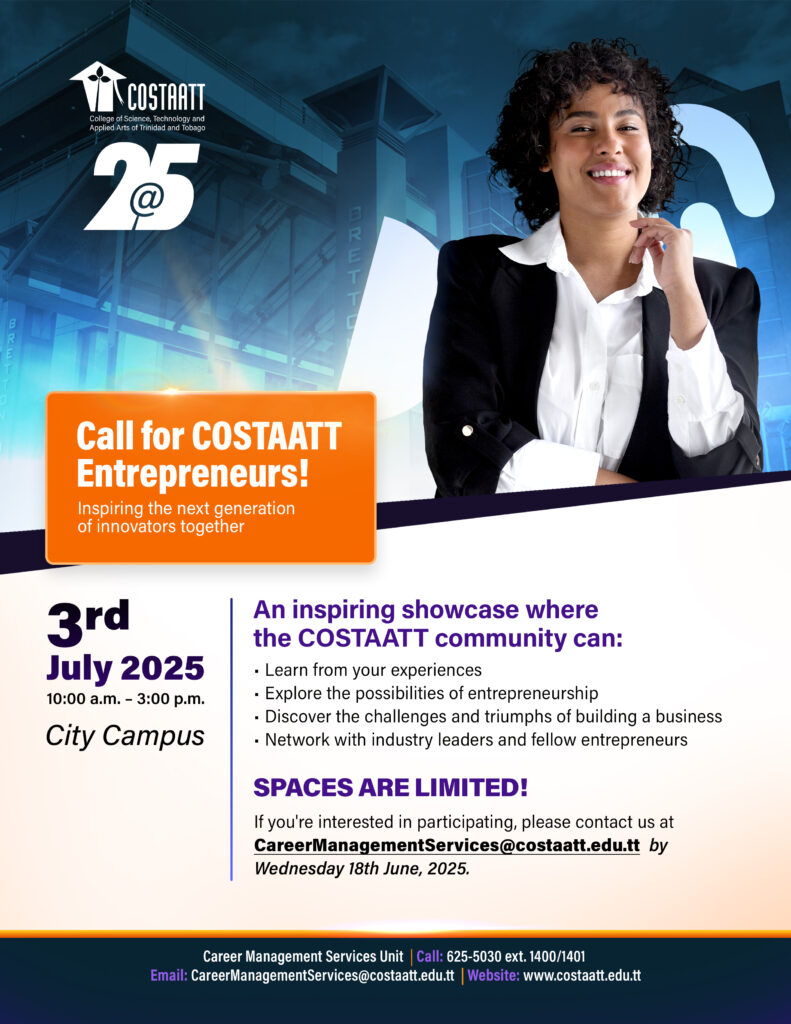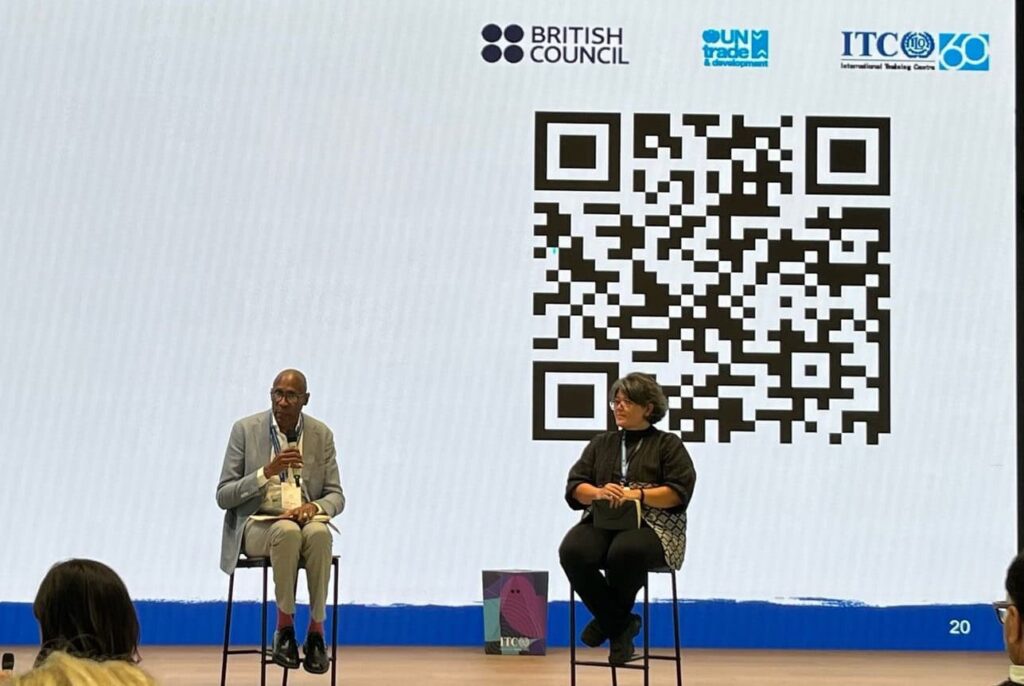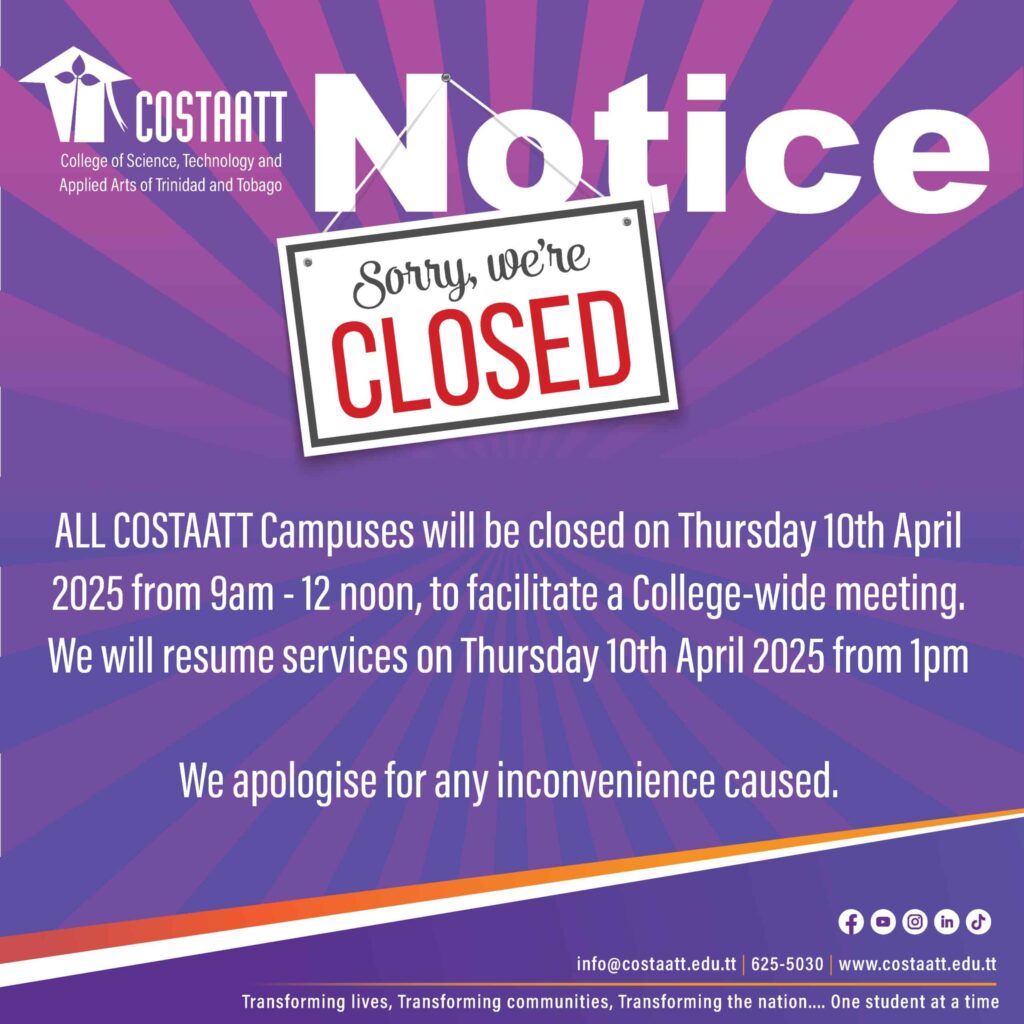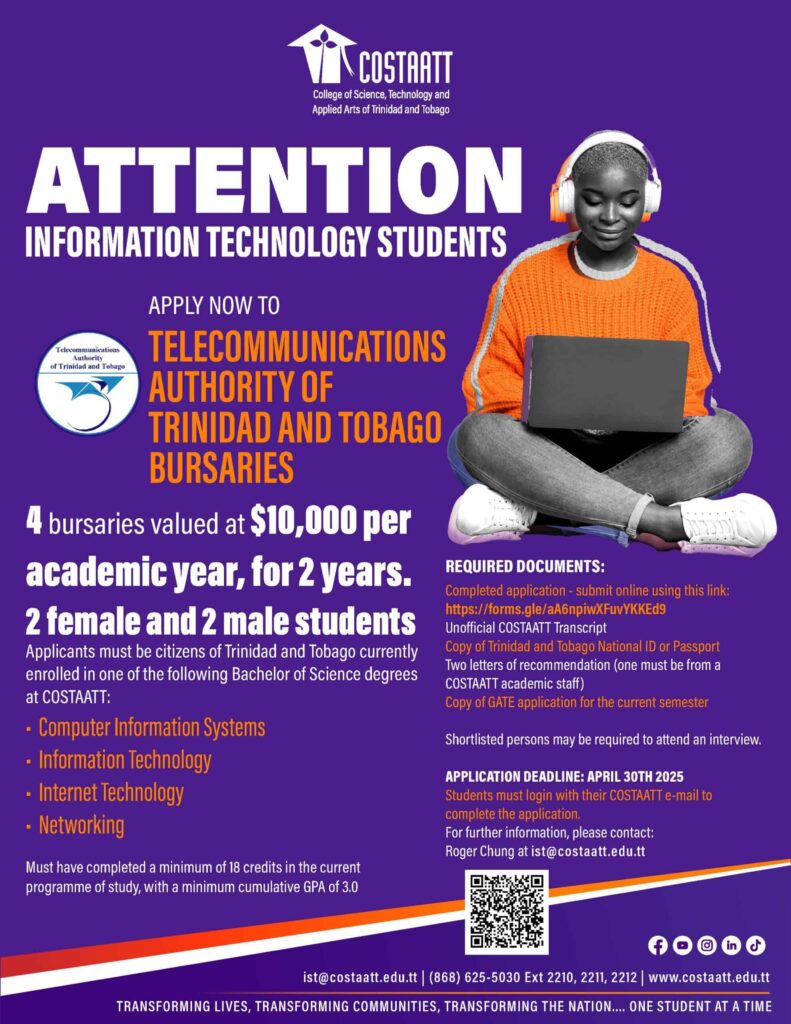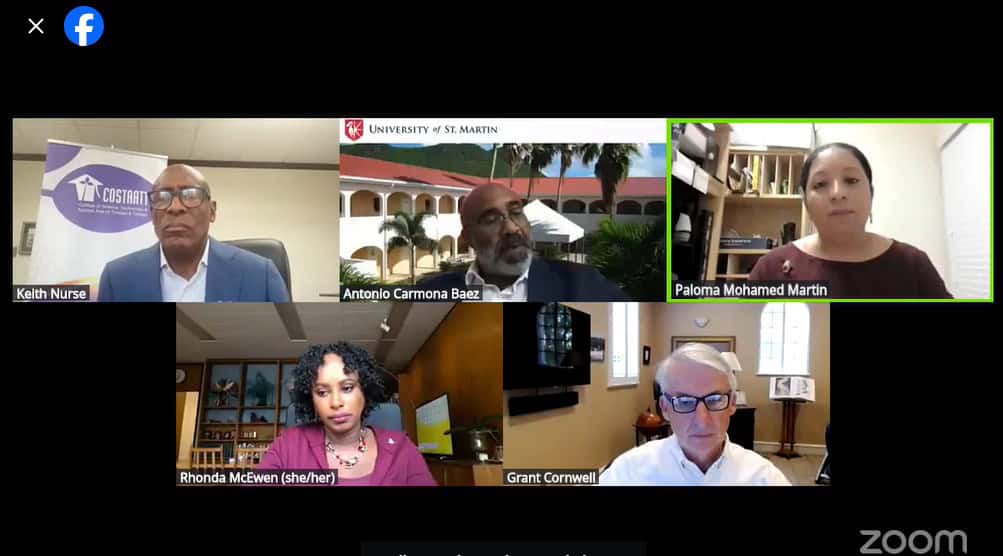[vc_row][vc_column width=”1/4″][vc_single_image image=”7059″ add_caption=”yes” onclick=”link_image”][/vc_column][vc_column width=”1/4″][vc_single_image image=”7057″ add_caption=”yes” onclick=”link_image”][/vc_column][vc_column width=”1/4″][vc_single_image image=”7038″ add_caption=”yes” onclick=”link_image”][/vc_column][vc_column width=”1/4″][/vc_column][/vc_row][vc_row][vc_column][vc_column_text el_class=”news-post-text-body”]The College of Science, Technology and Applied Arts of Trinidad and Tobago (COSTAATT) launched its new Link-Up Initiative
by screening the documentary “Education not Incarceration”. Produced by the Incarceration Nations Network and
Dr Dreisinger, the film centers on the experiences of incarcerated students worldwide.
Link-Up, embodies COSTAATT’s vision to serve diverse communities, enhance social equity and improve economic
diversification. This innovative programme is based on a prison education approach pioneered by Dr Baz Dreisinger,
and the Prison to College Pipeline project founded at the John Jay College of Criminal Justice in New York.
The basic philosophy of this approach is that all persons deserve access to higher education, and one’s incarceration
status should not be an obstacle to that opportunity.
At the film’s screening at COSTAATT’s Port of Spain campus on 15th February 2023, the College hosted representatives from
the Incarceration Nations Network, the Trinidad and Tobago Prison Service, the Ministry of Youth Development and
National Service, the Ministry of Education, the Office of the DPP, the Human Resource Management Association of Trinidad
and Tobago,CARIRI, the UNDP, the IDB, the US Embassy and many more.
Dr Keith Nurse, President of COSTAATT, communicated that programmes like this represent the raison d’être of
COSTAATT and are fully aligned with the College’s strategic vision of preparing work-ready students to meet industry needs.
However, this approach goes further than simply offering college-level courses behind bars. Instead, it promises to construct
a pipeline connecting the incarcerated student to the outside world by positioning the College as the hub facilitating
re-integration.
According to the project lead Dr Keron King, COSTAATT’s Link-Up programme ‘links’ the formerly incarcerated student ‘up’
to other stakeholders, all to aid in their re-integration into society. The programme offers training to incarcerated students in
Agri-entrepreneurship and communication skills, and upon the completion of their sentence, a place at COSTAATT to pursue
additional educational pathways and networking opportunities.
This innovative approach is grounded in science, with one 2013 Rand Corporation report indicating that:
“correctional education improves inmates chances of not returning to prison”, “inmates who participate in correctional
education programs had 43 percent lower odds of recidivating that those who did not” and the “odds of obtaining
employment post release among inmates who participated in
correctional education was 13 per cent higher than… those who did not participate…”.
These and the many other benefits of prison education were discussed, and while lively and positive, the discussion was
grounded in the reality that the work ahead is no easy task. The Deputy Commissioner of Prisons (Programmes), Mr Carlos
Corraspe, agreed that a programme like Link Up is
needed and looks forward to its eventual implementation.
In closing the launch, attendees echoed the sentiment of one incarcerated student from the documentary; when asked to
explain the change in his life. He replied, “what changed?…education changed?”[/vc_column_text][/vc_column][/vc_row]


